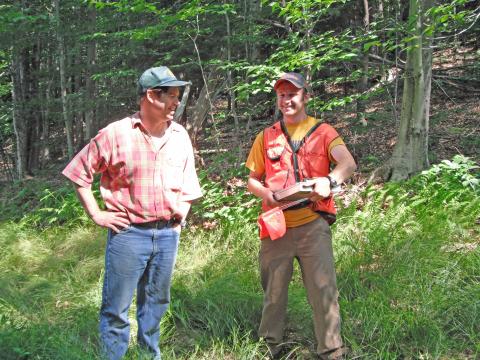The Impact of Wood Procurement Pressure on Sustained Yield Management on Private Non-Industrial Forestland in the Northern Forest

Family forest owners control more than half of all forestland in the Northern Forest region. Timber harvesting on these lands increased significantly in recent decades, making sustainable management of family forests increasingly important for protecting integrity of forested ecosystems. At the same time, timber production is a vital cornerstone for future economic development in the region. Sustaining timber yields and protecting surface water quality is, therefore, important economically and environmentally.
Understanding factors that influence management decisions is a first step toward promoting sustained yield management. For instance, does wood procurement pressure by sawmills encourage overharvesting, or does it give landowners financial flexibility to practice sustainable management? Findings will allow policy makers and managers to predict effects of changing markets and better plan for them. Past research examined levels of landowner engagement on forestland, but few studies have explored how landowner engagement relates to actual implementation of sustainable management.
In Vermont, NSRC researchers interviewed family forest owners and conducted field surveys on 59 properties of at least 25 acres of timberland harvested in the last five years. Using recent geospatial wood procurement pressure data, researchers discovered that sawtimber procurement pressure and competition did not correlate with landowners' use of sustained yield management, suggesting that procurement pressure neither helps nor hinders sustainable management efforts. Enrollment in Vermont's Use Value Appraisal tax abatement program was notably correlated to better forest stocking and practices that protect water quality, demonstrating the program's success. Researchers also determined that engaged landowners used sustained yield forestry more than non-engaged owners, but recommended outreach programs would benefit all landowners.
Download printable version [PDF]
Download full final report [PDF]
